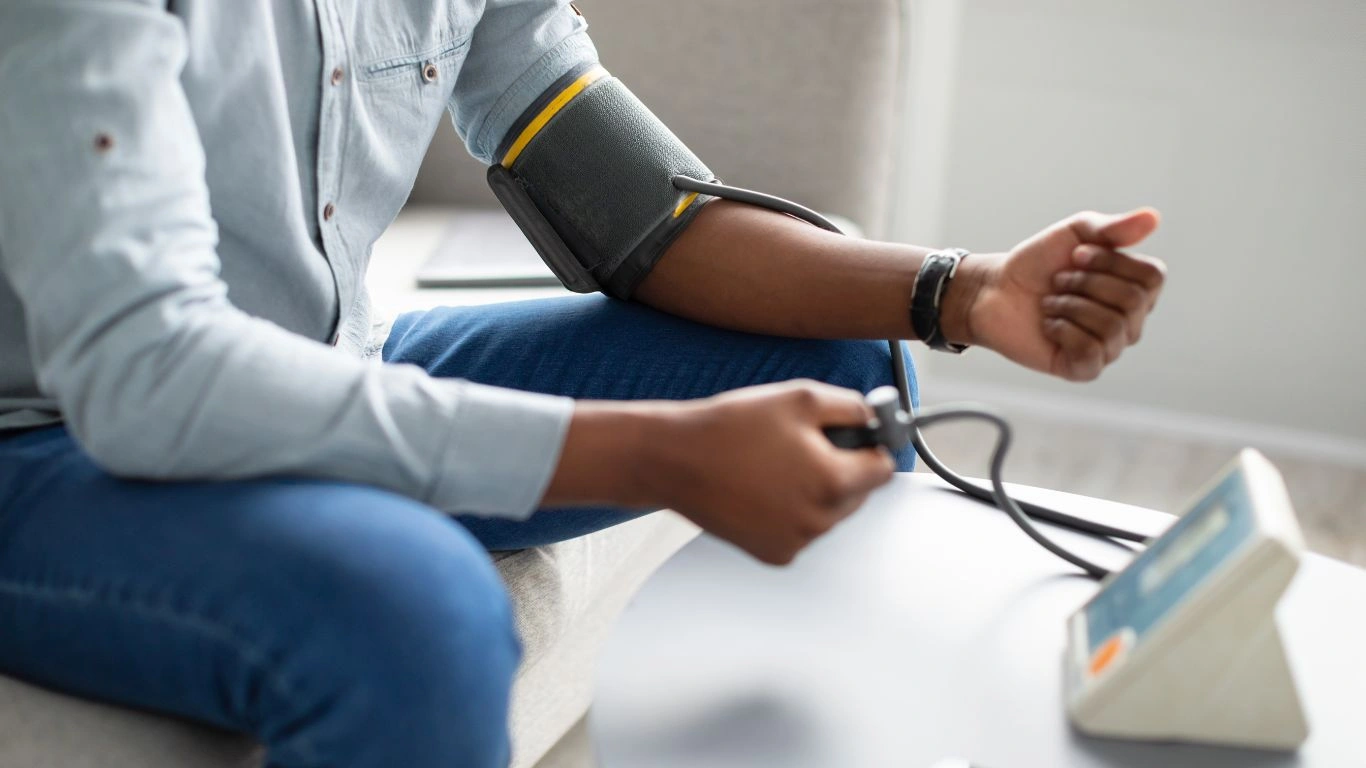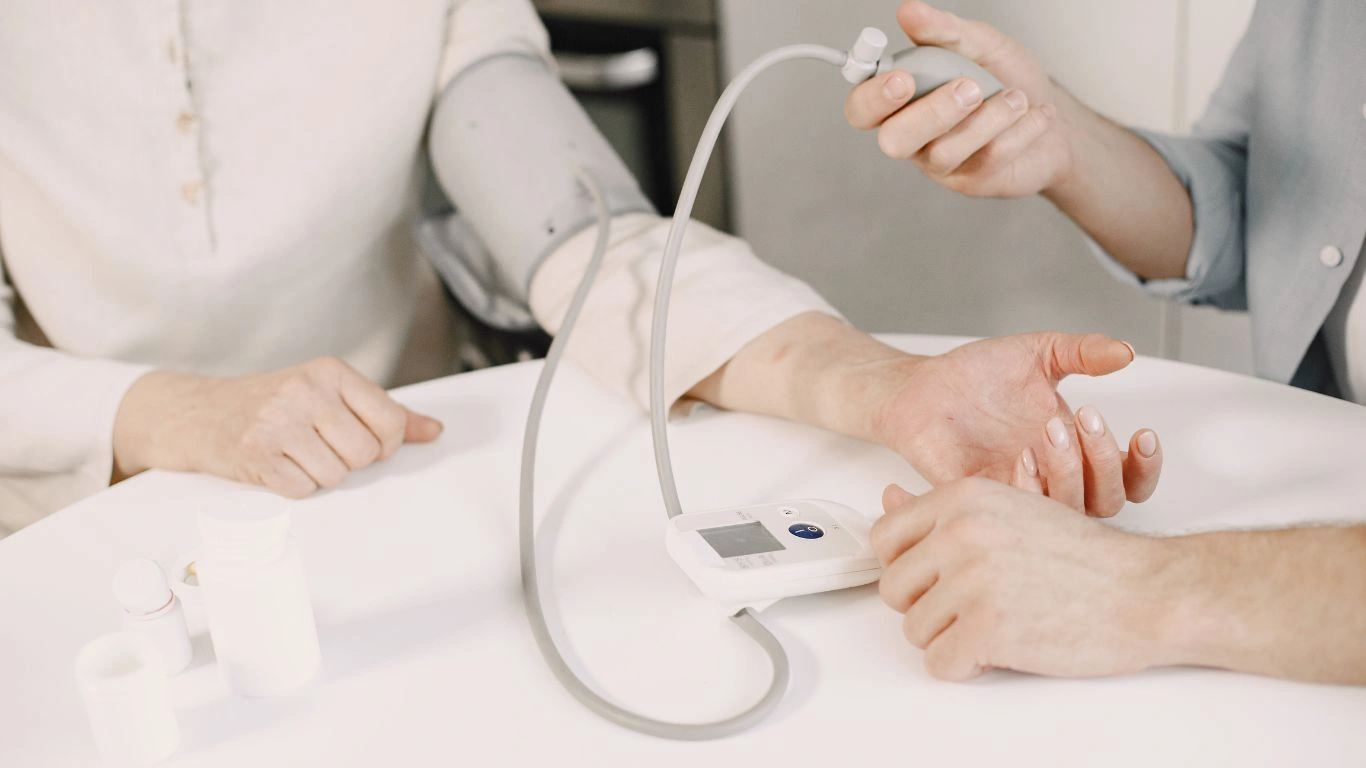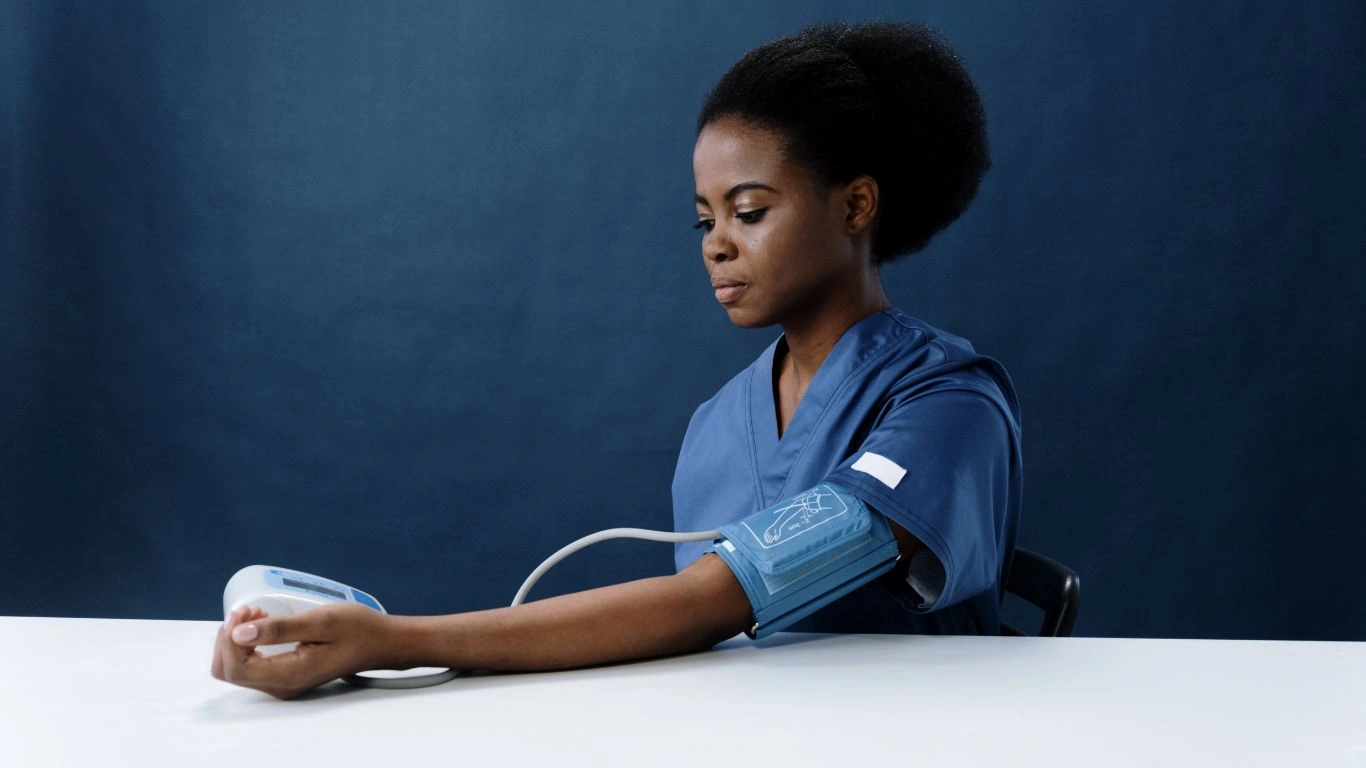The Sugar Intake and Blood Pressure Connection: What You Need to Know
Did you know that sugar can have a significant impact on your blood pressure? In this article, we’ll explore how sugar intake can influence your heart health and why cutting back could help manage hypertension.
If you’re like most people, you probably associate high blood pressure (hypertension) with things like too much salt, stress, or a lack of exercise. But here’s the kicker: sugar might be playing a bigger role than you think. It’s not just about what you put on your plate; what’s in your drinks, snacks, and desserts can have a sneaky effect on your blood pressure too. In this guide, we’re diving into the sugar and blood pressure connection and breaking down how sugar can impact your cardiovascular health.

How Sugar Affects Blood Pressure
First off, let’s talk about why sugar can have a significant effect on your blood pressure. High sugar consumption, particularly in the form of added sugars like those in sodas, sugary snacks, and processed foods, has been linked to increased blood pressure. The mechanism? Well, when you eat or drink foods high in sugar, your body reacts by releasing insulin. This causes your blood vessels to constrict and raises your blood pressure.
The more sugar you consume over time, the more your body is forced to keep up with the insulin response. This can lead to long-term health issues like insulin resistance, which is a precursor to diabetes and can also raise blood pressure.

The Role of Fructose in Hypertension
One type of sugar that gets a lot of attention is fructose, which is found in high-fructose corn syrup (HFCS). HFCS is commonly used in sodas, processed foods, and sweets. Studies show that fructose can contribute to higher blood pressure by causing fluid retention, increasing the production of uric acid, and promoting inflammation—all of which can strain your cardiovascular system.
Sugar and Weight Gain: A Link to Hypertension
Another important link between sugar and high blood pressure is weight gain. Consuming excess sugar, especially from sugary drinks, leads to more calories. This surplus of calories can result in weight gain over time, which is a major risk factor for developing hypertension. The more weight you carry, the harder your heart has to work to pump blood, which can contribute to high blood pressure.
In fact, reducing sugar intake is often one of the first steps recommended when someone is trying to lose weight and lower their blood pressure. Cutting out sugary drinks and snacks can help you manage your weight and, by extension, help control your blood pressure.

How Much Sugar Should You Be Eating?
So, how much sugar is too much when it comes to managing blood pressure? The American Heart Association (AHA) recommends that women limit their added sugar intake to no more than 6 teaspoons (25 grams) per day, while men should stick to no more than 9 teaspoons (38 grams) per day. However, most people exceed this limit without even realizing it, thanks to the hidden sugars in processed foods and drinks.
For reference, one can of soda can have up to 10 teaspoons of sugar, which already exceeds the daily recommended limit. This is why being mindful of your sugar intake is so important when trying to maintain healthy blood pressure levels.
Can Reducing Sugar Really Lower Blood Pressure?
The short answer is yes—cutting back on sugar can help lower blood pressure. Studies have shown that reducing your intake of sugary foods and beverages can lead to improvements in both systolic (top number) and diastolic (bottom number) blood pressure. One study found that people who reduced their sugar intake by just 25% saw significant drops in both of these numbers over the course of a few weeks.
Moreover, cutting out sugar can help you lose weight, improve your insulin sensitivity, and reduce inflammation—all of which can have a positive effect on your heart health and blood pressure.

Other Ways to Control Your Blood Pressure
While reducing sugar intake is a big step in managing blood pressure, it’s not the only thing you can do. Here are some additional lifestyle changes that can help:
1. Cut Back on Salt
We all know that too much salt can contribute to high blood pressure, so it’s a good idea to keep your salt intake in check. Opt for fresh foods instead of processed ones, and be mindful of how much salt you’re using in cooking.
2. Get Active
Exercise is one of the most effective ways to lower blood pressure. Just 30 minutes of moderate exercise a day, like walking, swimming, or cycling, can make a significant difference in your numbers.
3. Eat a Balanced Diet
A healthy diet rich in fruits, vegetables, whole grains, and lean proteins can support healthy blood pressure levels. The DASH (Dietary Approaches to Stop Hypertension) diet, which focuses on low-sodium, nutrient-rich foods, is specifically designed to help lower blood pressure.
4. Manage Stress
Chronic stress is another contributor to high blood pressure. Finding ways to manage stress—whether it’s through meditation, deep breathing exercises, or simply taking time to relax—can benefit your overall health.
The Bottom Line: Sugar’s Impact on Your Heart Health
While there’s no magic solution to controlling blood pressure, reducing your sugar intake is one of the most effective and accessible strategies. By cutting back on sugary foods and beverages, you’re not only doing your waistline a favor but also protecting your heart and managing your blood pressure more effectively.
If you’re serious about lowering your blood pressure, it’s important to make sugar reduction a key part of your strategy. Combine it with other lifestyle changes, and you’ll be on your way to healthier, more balanced blood pressure levels.
Appendices
FAQs
- Does sugar directly cause high blood pressure? While sugar doesn’t directly cause high blood pressure, excessive sugar intake can lead to insulin resistance, inflammation, and weight gain, all of which are risk factors for hypertension.
- Can cutting out sugar completely help reduce blood pressure? Completely eliminating sugar isn’t necessary for most people, but reducing your intake significantly can help lower blood pressure over time.
- How long does it take to notice a difference in blood pressure after cutting back on sugar? Some people see improvements in their blood pressure within a few weeks of reducing their sugar intake. However, it can take longer depending on other factors like weight loss and overall health.
- What are some healthy alternatives to sugary snacks and drinks? Opt for fresh fruits, unsweetened yogurt, and water or herbal teas instead of sugary snacks and sodas. These options are much better for your blood pressure and overall health.
- Is it possible to manage blood pressure with diet alone? Diet plays a significant role in managing blood pressure, but it’s often necessary to combine dietary changes with exercise and stress management for the best results.
References
- American Heart Association. (2023). Sugar and Your Health. Read Article
- Johnson, R. K., et al. (2017). The Impact of Sugar on Hypertension. Journal of Cardiovascular Research, 45(2), 203-210.
- National Institutes of Health. (2023). Blood Pressure and Sugar Intake: What You Need to Know. Read Article
Disclaimer:
The information in this article is intended for educational purposes only and should not be used as a substitute for professional medical advice. Always consult your healthcare provider before making any significant changes to your diet or lifestyle, especially if you have high blood pressure or other underlying health conditions.

Dr. Gwenna Aazee is a board-certified Internal Medicine Physician with a special focus on hypertension management, chronic disease prevention, and patient education. With years of experience in both clinical practice and medical writing, she’s passionate about turning evidence-based medicine into accessible, actionable advice. Through her work at Healthusias.com, Dr. Aazee empowers readers to take charge of their health with confidence and clarity. Off the clock, she enjoys deep dives into nutrition research, long walks with her rescue pup, and simplifying medical jargon one article at a time.







